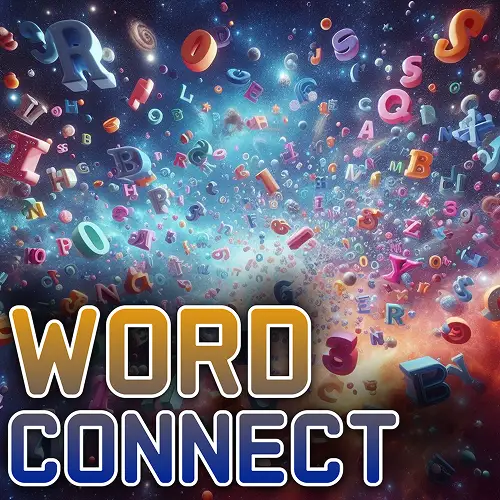In a world filled with stress, screens, and fast-paced routines, it’s hard to find an activity that’s both fun and beneficial for your brain. That’s where online puzzle games come in! Whether it’s matching shapes, solving crosswords, arranging numbers, or figuring out tricky patterns, these games aren’t just for passing time. They’re like a workout for your mind — challenging your brain, improving focus, and even helping with relaxation.
With thousands of puzzle games available online — from Sudoku and jigsaw puzzles to escape rooms and word games — there’s something for everyone. You can play alone to relax or compete with friends to test your skills. And the best part? You’re not just playing — you’re learning, growing, and boosting your brain health without even realizing it. Let’s dive into 10 great reasons why puzzle games online are more than just entertainment — they’re powerful tools for your mental and emotional well-being.
1.Improves Memory Power
One of the most important benefits of puzzle games is how they help sharpen your memory. Games that require you to remember patterns, shapes, or sequences strengthen the parts of the brain linked to short-term memory. This is especially useful in daily life — from remembering grocery lists to recalling people’s names. When you play puzzles regularly, you’re training your brain to hold and process more information, just like exercise helps your muscles grow stronger.
2.Boosts Problem-Solving Skills
Online puzzles often require you to think critically and make decisions. Whether you’re solving a tricky math puzzle or figuring out the best way to move pieces in a logic game, you’re constantly testing your problem-solving abilities. This mental challenge teaches you how to look at a situation from different angles, which is a useful life skill — at school, at work, and even in relationships.
3.Increases Attention to Detail
Many puzzles require you to spot tiny differences, match patterns, or notice specific sequences. This improves your attention to detail and makes you more observant. Over time, you become better at focusing on small tasks and spotting errors — skills that are helpful in professional tasks like writing, editing, coding, or any job that demands precision.
4.Enhances Patience and Persistence
Not all puzzles are easy. Some can be really frustrating. But finishing them gives a sense of satisfaction. As you stick with a tough game, you build patience and learn how to stay calm under pressure. This teaches persistence — a powerful trait that helps you face real-life challenges without giving up too soon.
5.Reduces Stress and Anxiety
Puzzle games can be surprisingly calming. When you’re focused on solving a jigsaw or matching colors in a pattern, your brain enters a relaxed, meditative state. This helps lower stress levels and eases anxiety. For people who feel overwhelmed or anxious, puzzle games offer a great way to relax and take a break from negative thoughts.
6.Improves Mood and Mental Health
Winning a puzzle game, especially after struggling with it, gives a sense of achievement. Your brain releases dopamine — the “feel-good” chemical — which boosts your mood and keeps you motivated. Regular mental stimulation through games also helps in fighting symptoms of depression and can make you feel more positive and energized throughout the day.
7.Encourages Social Interaction
Many online puzzle games come with multiplayer features or social leaderboards. You can team up with friends, challenge strangers, or share your scores. This helps in social bonding and adds a fun, competitive spirit. Social puzzles also help develop teamwork, communication, and collaboration — especially useful for kids and young adults.
8.Sharpens Logical and Analytical Thinking
Most puzzles are built on logic — they challenge your brain to think in structured and analytical ways. Whether it’s a number game, a brain teaser, or a strategic tile puzzle, you’re constantly working on how to apply logic to reach a solution. This mental discipline helps sharpen your reasoning abilities, which are important for academic success and smart decision-making in everyday life.
9.Helps Prevent Cognitive Decline
Just like the body needs exercise to stay fit, the brain needs stimulation to stay sharp — especially as we age. Research shows that regularly playing brain-challenging games like puzzles can help slow down memory loss and even reduce the risk of diseases like Alzheimer’s. For older adults, puzzle games are a simple and enjoyable way to keep their minds active and healthy.
10.Convenient and Accessible for Everyone
One of the greatest advantages of online puzzle games is their incredible ease of access. Unlike many hobbies that require special tools, lessons, or large time commitments, puzzle games are simple and convenient. All you need is a smartphone, tablet, or computer — devices that most people already use every day. Whether you’re sitting at home, commuting, or waiting in a queue, you can play a quick game with just a few taps.
There’s no need to invest in expensive consoles or spend hours learning how to play. Online puzzle platforms and apps offer user-friendly interfaces and tutorials, making it easy for beginners to jump right in. From children as young as seven to adults in their seventies, people of all ages can enjoy the mental stimulation that hot games online provide. You can choose from thousands of free games available online — ranging from simple word puzzles and jigsaws to complex brain teasers and logic challenges.
The variety and availability make puzzle games a perfect fit for busy schedules. Whether you have just five minutes or an entire evening, there’s a puzzle that fits your time and mood. In short, puzzle games are a brain-boosting activity that’s always within reach — fun, flexible, and completely accessible.
Playing puzzle games online is so much more than a way to pass the time — it’s a powerful way to strengthen your brain, lift your mood, and even improve your daily life skills. Whether you’re solving crosswords during lunch, playing Sudoku on the train, or spending the evening on a virtual jigsaw with your kids, you’re doing something great for your mental health. So the next time you tap into a puzzle game, remember, you’re not just playing, you’re growing.








Thanks for your personal marvelous posting! I certainly enjoyed reading it,
you happen to be a great author. I will remember
to bookmark your blog and may come back from now on. I want to encourage you to ultimately continue your great
writing, have a nice afternoon!
It’s going to be ending of mine day, but before ending I am reading this wonderful
piece of writing to increase my know-how.